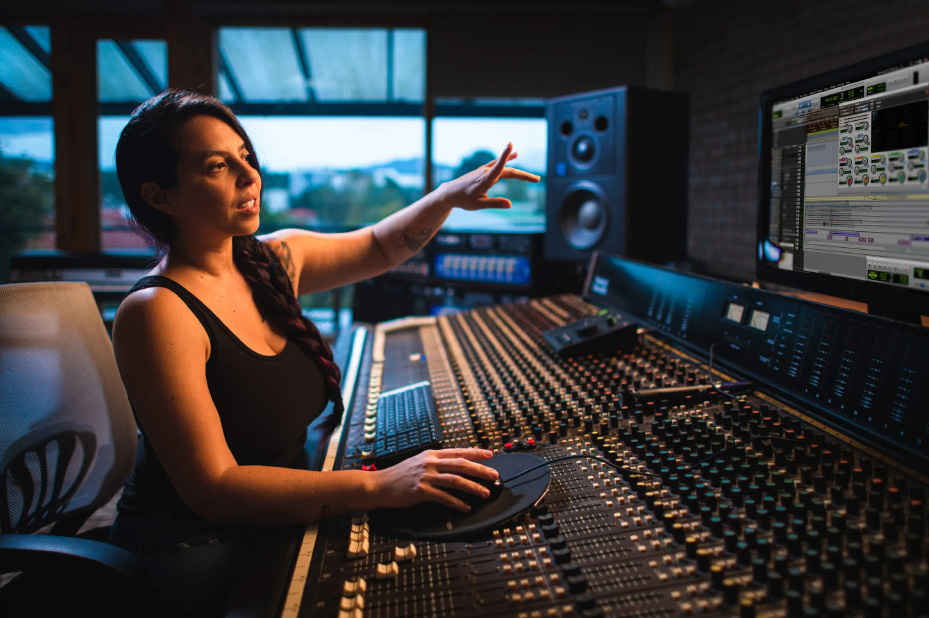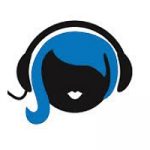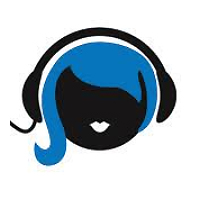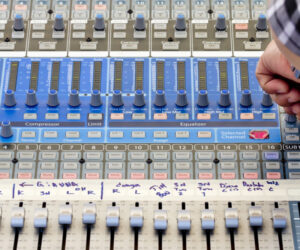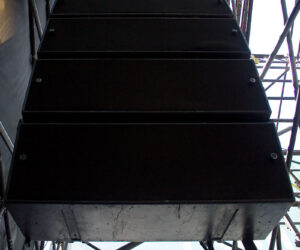Andrea Arenas is a live and studio engineer who’s been working in professional audio for more than 17 years, currently serving as a sound technician for La Perle by Dragone in Dubai. She discovered audio while in her teens, overhearing some of her friends from orchestra discussing engineering.
Originally, Arenas wanted to pursue music, as she’d been learning percussion since the age of 10, but she was deterred by her family from that career path, so she opted to go the audio route. Residing at the time in Venezuela, there were no official institutions offering an audio curriculum, so she instead enrolled in the Electronic Engineering program at Simón Bolívar University in Caracas with the understanding that it would relate to studies in audio and music.
In addition to her work, she’s also currently enrolled at Iberoamerican University in Puebla, pursuing a master’s degree in Cultural Management. Against that backdrop, let’s learn more with a Q&A session.
Q: How did you get your start?
Arenas: I approached a recording studio at my university, part of the communications department, open-minded and willing to find a person who could take me in to teach me all about it. The person in charge of it, fortunately, did that and taught me most of the things I know about sound today.
Q: How did your early internships or jobs help build a foundation for where you are now?
Arenas: That first job in the university studio was the door to starting my career in audio; it let me understand what the field was about and if it was something I would enjoy. So it was one of the most important decisions I’ve made in my career.
Q: What did you learn interning and/or on your early gigs?
Arenas: I learned about types of gear, signal flow, working processes, and critical listening. I also learned about which parts of a sound career I liked and what I did not.
Q: Did you have a mentor or someone that really helped you?
Arenas: Yes, Francisco “Coco” Diaz was the person who took me in at the university studio and mentored me for almost three years. Even after all these years, I still go to him when I need some perspective or advice. (You can follow Diaz’s Instagram account in Spanish for musical production tips at @serproductordemusica.)
Q: What’s a typical day like in your career now?
Arenas: I wake up at 8 to 9 am and take care of any home and personal activities like cleaning, cooking, yoga, etc. Then I check emails and work on any out-of-work projects like my personal music, podcasts, mixing, university classes, volunteering work, etc.
My work hours for the show usually start after 2 pm. When I arrive at the theater, I check the schedule for the day. We usually have some training, rehearsals or validations with artists. Sound check happens every day a couple of hours before the show starts, depending on my track for the day (because I rotate four tracks – FOH, monitors, RF, and musical director). I do presets for microphones, consoles, computers, so on, and then I run two shows and go home around midnight.

Q: How do you stay organized and focused?
Arenas: Discipline is part of the daily routine in every aspect of my life. I think mainly because of my musical training, I try to plan short-term goals and keep track of schedules I plan in my mind. I say “in my mind” because following a routine is not my way of doing it. Depending on the day’s mood I organize my activities trying to follow those short-term goals – let’s say I try to keep a weekly schedule rather than a daily tight schedule.
Q: What do you enjoy the most about your job?
Arenas: Feeling that I’m part of a show that, for at least two hours, takes people’s imagination to new places, to enjoy and be happy for a moment. It makes me feel rewarded.
Q: What do you like least?
Arenas: Having shows on days I want to see a show by one of my favorite artists.
Q: If you tour, what do you like best?
Arenas: Before the pandemic, I was touring with Cirque and my favorite part was always during the first sound check at every new city. I usually felt very tired at that moment because of the transfer work, but as soon as the first notes sounded, I could remember why I was doing it, kept going, and enjoyed the moment.
Q: What do you like least?
Arenas: Working many days in a row – one time I worked 22 days in a row. Live sound can be physically very demanding sometimes.
Q: What’s your favorite day off activity?
Arenas: I still work on personal projects during the days I don’t have shows. I consider everyday activities as a choice, and I disagree with thinking that on days off I’m “free.” Of course, I also enjoy nature and art activities, but I consider them as part of my schedule to achieve the mental state I need to be efficient, enjoy my creative process and enjoy life.
Q: What are your long-term goals?
Arenas: Keep learning and be open to new opportunities. The pandemic changed my perspective about two things: making plans and depending on a single paycheck. So, I’m willing to expand my horizons as much as possible, always open to new experiences related to sound, music, art, culture, and a sense of community.

Q: What if any obstacles or barriers have you faced?
Arenas: It has probably been to leave my country and be able to be recognized as a professional again despite having to practically start from scratch. It’s common to find people don’t trust your skills and even doubt your CV (resume) when you’re from a different latitude and speak different languages. Fortunately, not everyone thinks the same way, and others gave me the opportunity to prove myself and let my work speak for myself.
Q: How have you dealt with them?
Arenas: I always try to mention that despite anything that I’ve dealt with (consciously or not) I’m true to myself, and my ideas and keep working as hard and passionately as possible.
Q: Advice you have for women who wish to enter the field?
Arenas: Follow your instincts, speak up, despite feeling intimidated by others, and don’t let these feelings rule the way you behave or think. There will always be people more experienced and less experienced than you anywhere, just be aware that your opinion is also important and can be considered as others.
Q: Must-have skills?
Arenas: Problem-solving, active listening, and patience
Q: Favorite gear?
Arenas: I always say that because I haven’t tried it all, I can’t choose a favorite. I think the idea is to feel comfortable with the gear you use, and learning the most about it and practicing will be the only way to get there. So, I usually try to feel comfy with the gear I use; sometimes I wish I could have the “trendy” ones or the ones that a super famous artist or studio owns, but often it’s not possible. I embrace reality and get the best out of the gear I have in front of me.
Find out much more about SoundGirls at soundgirls.org.

